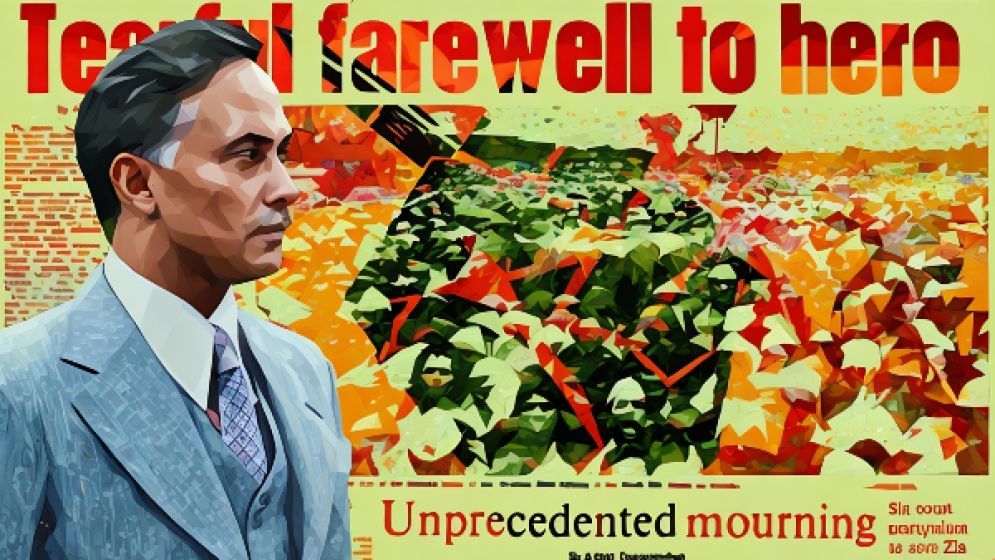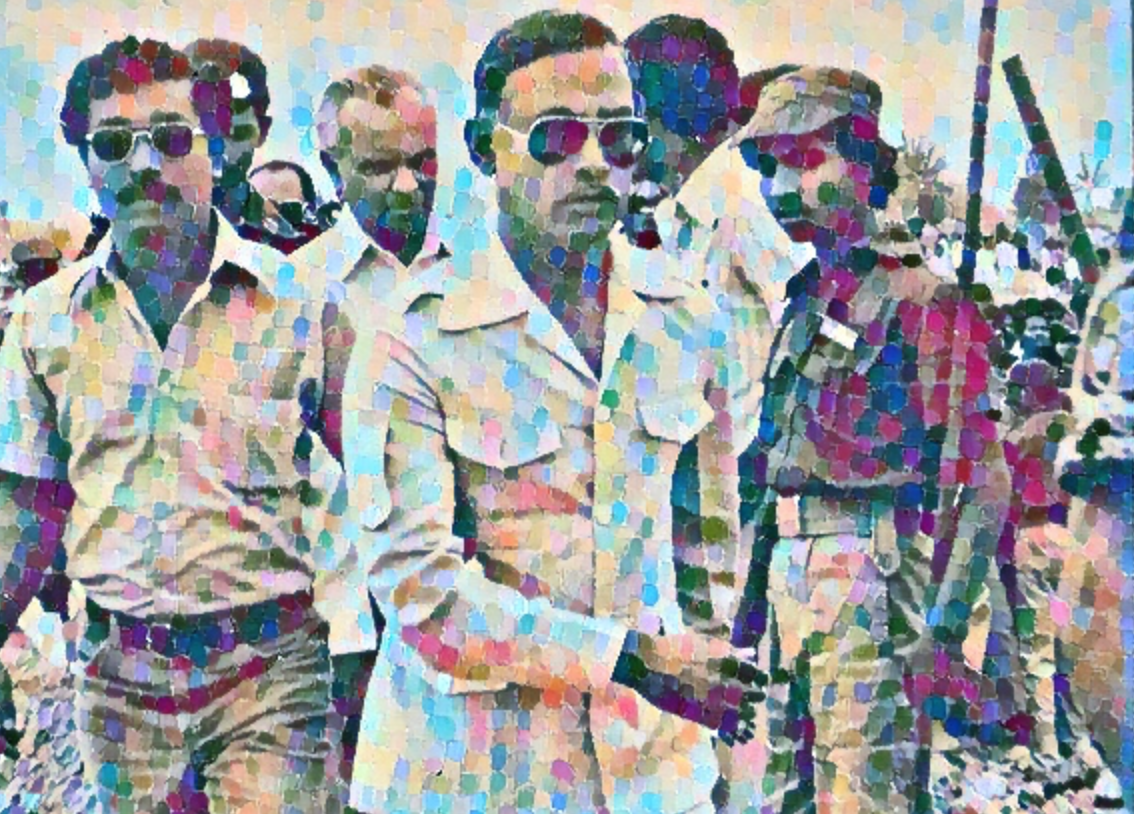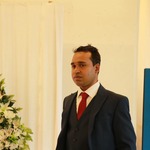Ziaur Rahman: A legacy of courage, leadership, and national transformation

Ziaur Rahman, a name woven deeply into the fabric of Bangladesh’s history, stands not just as a leader, but as a symbol of resilience, patriotism, and transformative vision.
A freedom fighter, an incorruptible statesman, and a revolutionary ruler, Zia’s legacy endures as a beacon for future generations.
His life—shaped by an unwavering dedication to his nation and its people—remains a testament to the profound impact of his service as a soldier, leader, and reformer.
From the battlefields of liberation to the corridors of power, Ziaur Rahman laid the foundation for a modern Bangladesh, steering the country through turbulent waters with purpose and resolve.
Zia’s role in the 1971 Liberation War was not only pivotal but transformative. A seasoned officer in the Pakistan Army, Zia witnessed firsthand the brutal injustices inflicted upon the Bengali population—atrocities that fueled his deep commitment to the cause of independence.
Amid a time of unprecedented crisis, when East Pakistan's political leadership faltered under the brutal assault of the West Pakistani military, a vacuum of leadership left the nation vulnerable and disoriented.
Sheikh Mujibur Rahman, the revered leader of East Pakistan, had been detained by the occupying forces, absent from the struggle at the moment when his people most needed direction.
In that void, Ziaur Rahman emerged as an unexpected but resolute symbol of defiance and hope. On March 26, 1971, as the West Pakistani military unleashed its brutal offensive on Dhaka, Zia broke from the ranks of the Pakistan Army to make a bold, historic stand.
The following day, from the Kalurghat radio station in Chittagong, he broadcast the declaration of Bangladesh’s independence, igniting the spark of resistance and uniting a fragmented nation in the fight for freedom.
That moment not only marked a defining act of courage but solidified Zia as one of the most significant figures in the independence movement. His declaration gave hope to millions, rekindling the flame of resistance at a moment when it seemed all but extinguished.
As a sector commander during the war, Zia’s leadership—marked by strategic brilliance, military acumen, and personal bravery—earned him the respect of both his comrades and the people. His skillful organization of guerrilla warfare played a critical role in the eventual triumph over Pakistani forces on December 16, 1971.
That victory was not only a military achievement but a triumph of will, a testament to the indomitable spirit of a nation that had risen from the ashes of oppression.
Zia’s actions during the war did more than cement his status as a national hero—they helped forge the very identity of the Bangladesh we know today.

From military overthrow to democratic
leadership
In the wake of Bangladesh’s liberation, the newly born nation faced deep political, economic, and social turbulence.
The assassination of President Sheikh Mujibur Rahman in a military coup on August 15, 1975, plunged the country into uncertainty. Khandaker Mushtaq Ahmed took the presidency, but his reign was short-lived.
By August 25, Ziaur Rahman was appointed Chief of Army Staff. Yet, just two months later, the country found itself again in the midst of political upheaval.
On November 3, Major General Khaled Musharraf, supported by the Dhaka Brigade under Colonel Shafayat Jamil, launched a failed coup, forcing Mushtaq Ahmed to step down and leading to the appointment of Abu Sadat Sayem as president.
Ziaur Rahman was ousted as Chief of Army Staff and placed under house arrest.
But this setback would not be the end of his political career. On November 4, Ziaur Rahman was freed in what became known as the Sepoy-People’s Revolution, marking his return to the political stage and setting the stage for his future leadership.
What set Zia apart was his remarkable connection with the people. Though a figure of immense power, he remained grounded and approachable, traveling extensively across the country to engage with citizens from all walks of life.
These interactions not only solidified his bond with the masses but also deeply influenced his policy decisions, which were rooted in the real concerns of ordinary Bangladeshis.
In 1978, Ziaur Rahman took a monumental step in shaping the country's political future by founding the Bangladesh Nationalist Party (BNP). The party was a reflection of his commitment to democracy, nationalism, and political pluralism.
One of its defining features was its appeal to the youth: nearly half of the party’s members were young and politically inexperienced, bringing fresh energy and perspectives to the national discourse. Zia formally launched the BNP on September 1, 1978, at a press conference at the Ramna Restaurant, where he presented the party’s manifesto and engaged in a two-hour dialogue with journalists.
Before the formation of the BNP, a precursor party, Jatiyatabadi Ganatantrik Dal (Jagdal), had been founded in February 1978 under Vice President Justice Abdus Sattar.
But by August of that year, Jagdal’s leadership agreed to dissolve the party, with its members joining the newly established BNP. The move proved to be a strategic success.
In the 1979 parliamentary elections, Zia’s BNP secured an overwhelming victory, winning 207 of the 298 seats in Parliament. By contrast, the Awami League, led by A. H. Malek Ukil, won just 39 seats.

A visionary leader who transformed Bangladesh’s political and
economic landscape
Ziaur Rahman reshaped the political and developmental landscape of Bangladesh, leaving an indelible mark on the nation’s trajectory.
His leadership emphasized a governance model centered on development, inclusivity, and national unity.
Zia strengthened Bangladesh’s democracy by ensuring inclusive elections, enhancing the authority of Parliament, and restoring vital freedoms such as judicial and press independence.
His commitment to nation-building extended beyond politics into the very fabric of society, where he implemented transformative initiatives that impacted agriculture, education, infrastructure, and foreign relations.
A staunch advocate for rural development, Zia’s agricultural reforms included the ambitious task of re-digging 1,400 canals to improve irrigation.
He also launched mass education programs, lifting literacy levels for four million people, and established the Village Defense Force (VDP) to safeguard rural peace and promote local development.
His focus on infrastructure saw the construction of roads and ghats across the country, enhancing connectivity, while his healthcare initiatives brought 27,500 village doctors to underserved areas, expanding access to medical care.
Zia’s economic vision turned Bangladesh into a food-exporting nation, spurred by increased industrial and agricultural output. His landmark "19-Point Programme" outlined a comprehensive agenda for socio-economic reform, addressing critical issues such as poverty, education, healthcare, and infrastructure. With an emphasis on inclusivity, Zia targeted the upliftment of marginalized communities, ensuring that the benefits of development reached all corners of the nation.
His efforts to empower women, youth, and underrepresented groups were reflected in the creation of new ministries, including those for Youth Development, Women's Affairs, Science and Technology, and Religion.
On the global stage, Zia made significant strides in elevating Bangladesh’s position. Under his leadership, the country was elected to the UN Security Council, joined the Al-Quds Committee, and played a pivotal role in founding the South Asian Association for Regional Cooperation (SAARC).
Zia’s foreign policy, characterized by a pragmatic non-aligned approach, fostered diplomatic ties with both Western and Eastern blocs, enabling Bangladesh to secure crucial economic and technical assistance.
Domestically, Zia’s economic diversification strategy relied on attracting private sector investment and expanding exports, particularly in manpower, garments, and non-traditional products.
His commitment to secularism and inclusive politics was evident in his efforts to instill a strong sense of national unity within his party, the Bangladesh Nationalist Party (BNP), through workshops that emphasized discipline, ideological clarity, and development.
Tragically, Ziaur Rahman’s life was cut short on May 30, 1981, when he was assassinated in Chittagong. However, his legacy endures as a beacon of hope for Bangladesh.
His vision for a self-reliant and prosperous nation continues to inspire generations of policymakers and leaders.
As a freedom fighter, he embodied sacrifice and courage; as a statesman, he demonstrated integrity and dedication to public service; and as a ruler, his visionary leadership transformed Bangladesh into a more unified, prosperous, and globally engaged nation.
Zia’s contributions to the country’s independence, development, and democracy have secured his place as one of Bangladesh’s greatest leaders. His life remains an enduring symbol of hope, resilience, and progress for the people of Bangladesh.
—-
Jobayer Hossain is the Country Coordinator for Malaysia & Singapore, Amnesty International UK. You can reach him at [email protected]

